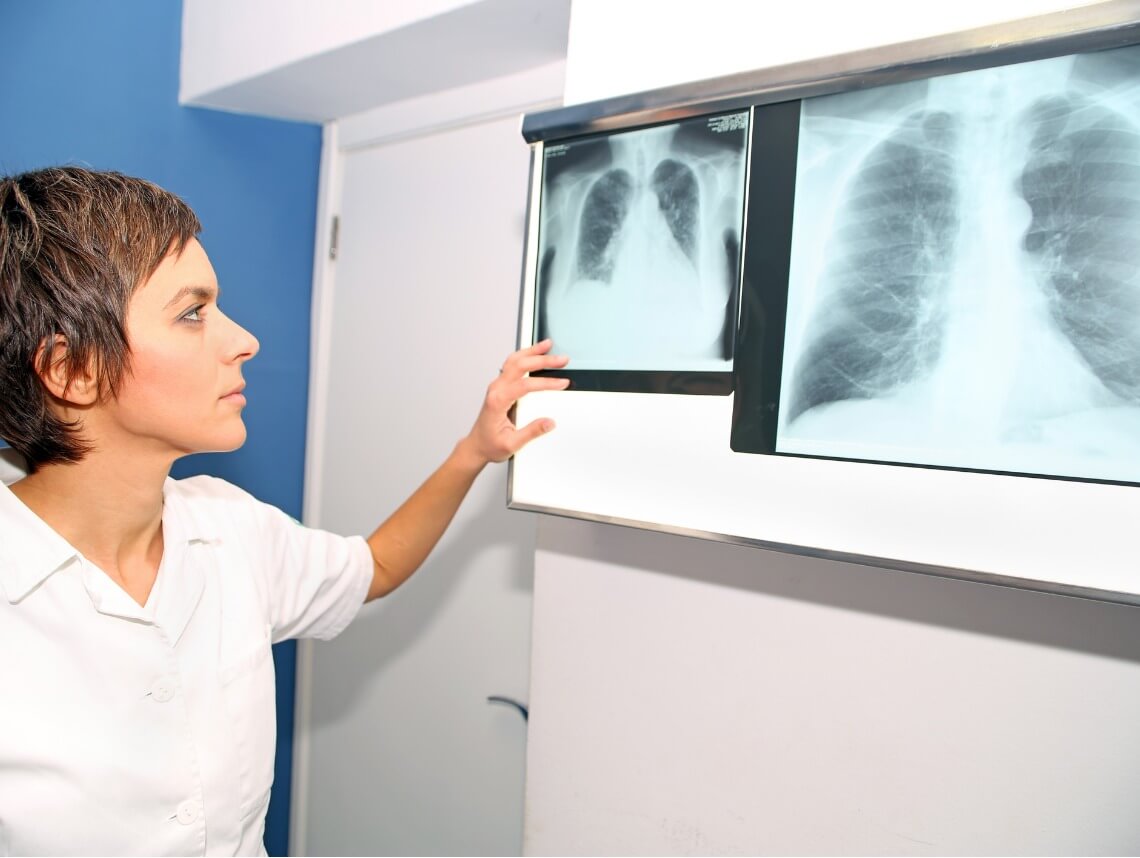Though the exact number of cases each year is not known, the Centers for Disease Control and Prevention estimate that approximately 900,000 people throughout the United States are impacted by pulmonary embolism (PE) or deep vein thrombosis each year.
This number is equal to between 1 and 2 people per 1000 throughout the country each year.
Of these, approximately 60,000 to 100,000 people die from the condition.
Though sudden death is the first symptom that approximately 25 percent of people with pulmonary embolism experience, there are some other signs that can indicate this condition.
As a caregiver, being able to recognize these signs and symptoms can help your parent get the medical attention that they need for prompt and effective management of the condition.
14 Signs and Symptoms of Pulmonary Embolism
Some of the signs and symptoms of pulmonary embolism include:
1. Shortness of breath, particularly if it worsens with exertion
2. Chest pain that gets worse with exertion and with deep breaths, this may feel like having a heart attack
3. Cough that produces bloody phlegm
4. Pain in the leg, generally in the calf
5. Swelling in the leg, generally in the calf
6. Clammy skin
7. Skin that suddenly becomes discolored
8. Fever that does not seem related to any other condition, such as an infection or illness
9. Excessive sweating
10. Night sweats
11. Irregular heartbeat
12. Rapid heartbeat
13. Dizziness
14. Lightheadedness
It is extremely important to keep in mind that a pulmonary embolism is a serious medical condition and can be life-threatening if not managed quickly and effectively. If you notice any symptoms in your aging parent that seem concerning or that are related to PE, get them to emergency medical services promptly.
You should also note that just because your parent has experienced one pulmonary embolism and recovered from it does not mean that you should let down your guard. Most of the time there is more than one blood clot and they might not travel to the lungs at the same time. This means that your aging parent could experience another PE soon. Your parent may need to make changes to their daily routine to help reduce the risk that they will suffer another of these serious medical events.
Contact Sonas for Home Health Care Services
If you have noticed that your senior loved one’s challenges and limitations have gotten worse and you no longer feel confident that you are able to give them the level of care that they need, or your own limitations or schedule have changed and you cannot give them the care that you would want to, starting home care for them might be the ideal solution.
Whether your parent needs only a small amount of support such as transportation and help with activities of daily living, or more extensive care and support, you can work with an in-home care provider to personalized a schedule and an approach to help them address their individual challenges and limitations in the way that is right for them. As a family caregiver, this can give you peace of mind knowing that your senior is in good hands both when you are able to be with them and when you are not.
If you or an aging loved one are considering home health care services in Florida, contact the caring staff at Sonas Home Health Care. Call today (888) 592-5855.
Sources
https://www.cdc.gov/ncbddd/dvt/data.html
https://www.mayoclinic.org/diseases-conditions/pulmonary-embolism/symptoms-causes/syc-20354647
This blog was reviewed by Jillian Miller BSN, RN — Director of Nursing for Sonas Home Health Care’s Tampa Bay market — for clinical accuracy. Jillian Miller has been a nurse for 16 years — working primarily in pediatrics. She believes the best part of working with the pediatric population is when you see smiles from clients when you first enter the room. She loves seeing the difference you can make in families’ lives while providing the best care possible for them.

